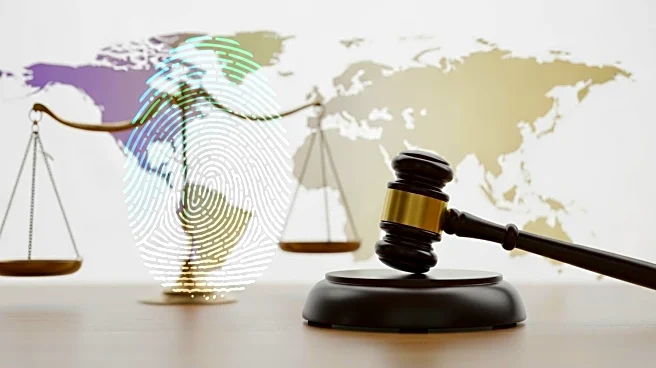What's Happening?
Australia has taken a significant step in regulating the misuse of deepfake technology by imposing a $343,500 civil penalty on Anthony Rotondo for posting non-consensual, pornified deepfake images of Australian women. This case, initiated by the eSafety commissioner, underscores the country's commitment to combating image-based abuse. The court's decision to penalize Rotondo aims to deter similar acts of cruelty and humiliation. The incident has sparked a broader conversation about the need for stringent regulations to prevent the normalization of such harmful digital practices. Australia's proactive stance is seen as a model for other countries grappling with the challenges posed by rapidly advancing technology.
Why It's Important?
The ruling against Rotondo is a landmark in the fight against digital abuse, setting a precedent for how deepfake technology can be regulated. This decision is crucial as it addresses the growing concern over the misuse of AI in creating harmful content. By taking a firm stand, Australia is not only protecting its citizens but also influencing global discourse on digital rights and privacy. The case highlights the need for international cooperation in developing comprehensive regulations to safeguard individuals from technological exploitation. As deepfake technology becomes more accessible, the potential for abuse increases, making regulatory measures essential to protect societal norms and individual rights.
What's Next?
Following Australia's example, other countries may consider implementing similar regulations to address the misuse of deepfake technology. The international community is likely to observe Australia's approach closely, potentially leading to collaborative efforts in establishing global standards for digital content regulation. Stakeholders, including governments, tech companies, and civil society, may engage in discussions to balance innovation with ethical considerations. The case also emphasizes the importance of public awareness and education on the implications of deepfake technology, encouraging individuals to advocate for stronger protections against digital abuse.
Beyond the Headlines
The ethical implications of deepfake technology extend beyond legal penalties. The technology challenges traditional notions of privacy and consent, raising questions about the boundaries of digital expression. As deepfakes become more sophisticated, distinguishing between real and manipulated content becomes increasingly difficult, potentially eroding trust in digital media. This development calls for a reevaluation of ethical standards in technology use, emphasizing the need for responsible innovation that prioritizes human dignity and rights.









